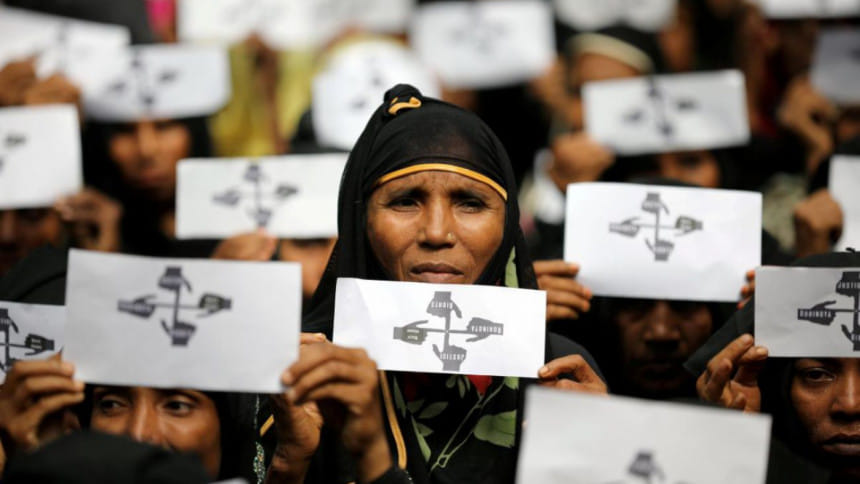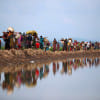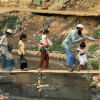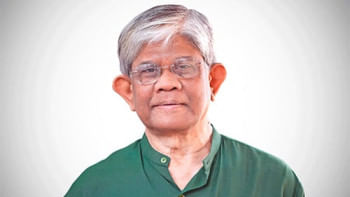Rohingyas deserve better

The Rohingyas who moved to Bangladesh reached an important milestone on August 25, 2018. The first anniversary of the exodus from their homeland in Myanmar was observed with solemnity in Bangladesh, Myanmar, and everywhere that the Rohingya diaspora have now spread out to. It is not a coincidence that Myanmar's principal spokesperson, State Counsellor Aung San Suu Kyi, came out with all guns blazing to defend the regime ensconced in Naypyidaw and attempted to shift the blame to Bangladesh for the delay in repatriation. "It's very difficult for us to put a timeframe on it by ourselves unilaterally because we have to work with Bangladesh in order to do that," Suu Kyi said on August 21 at the 43rd Singapore Lecture organised by the ISEAS-Yusof Ishak Institute. "Bangladesh would also have to decide how quickly they want the process to be completed," she added. She also mentioned that 81 out of the 88 recommendations of the Kofi Annan Advisory Committee have been implemented.
Bangladesh was in the midst of a three-day celebration of Eid-ul-Adha when this blatant lie from the State Counsellor reached the shores of a nation which has been not only offering shelter to a million refugees from Myanmar, but also working on their behalf to facilitate their safe and sustainable return. Her suggestion that Bangladesh might have a vested interest in prolonging the misery of a population, which only came to its soil to escape the brutality of the marauding gangs, religious zealots, and elements of the Tatmadaw (Myanmar army) bent on ethnic cleansing, defies all norms of decency and sound reasoning.
Condemnation of this gross illustration of blaming the victims has been swift, and came from the ASEAN Parliamentarians for Human Rights (APHR) who called for the Myanmar military to be "brought to justice" for its "murderous operation in Rakhine State". In a statement released on August 24, more than 130 members of parliaments from Indonesia, Malaysia, Philippines, Timor-Leste and Singapore demanded that Myanmar be investigated by the International Criminal Court (ICC). This is "the most united condemnation from the region since the violence began against the Rohingya a year ago." However, one can hope that Aung San Suu Kyi, who was once given the Nobel Prize for Peace, will reflect more deeply on the crisis and offer sound and reasoned advice to—and on behalf of—the government she represents.
In another development, a few days ago, the Independent Commission of Inquiry formed by Myanmar and led by former Philippine diplomat Rosario Manolo met with Myanmar's leaders in Naypyidaw, and promised that the panel will be "independent, impartial and neutral." However, Ms Manolo set a deadline of August 15, 2019 to deliver the report of this commission to Myanmar's president, and this timeframe implies that Bangladesh and the international community must continue their vigilance and keep up the pressure on Myanmar to mend its ways and reconcile itself to the idea of Rohingyas returning to their homeland and reclaiming their rights.
It cannot be gainsaid that in the final analysis, economic pressure is what forced North Korea and the former apartheid regime in South Africa to come to the bargaining table. In the past, the military regime in Myanmar relaxed its grip on power, and restored some basic rights only after decades of tight economic and diplomatic sanctions imposed on the erstwhile dictatorship. Some bad actors in that country still carry on with the old mindset, and will be reluctant to acknowledge and come to terms with the idea of making amends for the abominable acts perpetrated on the Rohingyas in the past year, and way before that. The denial of citizenship, the policy of ethnic cleansing, use of brute power and murder, and instances of rape and abduction are there for all to see, but the ruling coalition in Naypyidaw appear to be in a state of amnesia.
The Rohingyas will be able to return to their homesteads only if the international community steps up and tightens the squeeze on Naypyidaw through a concerted effort combining economic sanctions, selective targeting of the financial interests of its civil and military rulers, and continued diplomatic and parliamentary engagement with the ruling coalition. So far, what we have seen after one year of action and threats is, there is still a feeling in Naypyidaw that the storm will pass. The Rohingyas, Bangladesh, and the international community must increase the pressure on those who perpetrated the heinous acts to be brought to justice and to offer reparations for past misdeeds.
Dr Abdullah Shibli is an economist and Senior Research Fellow, International Sustainable Development Institute (ISDI), a think-tank in Boston, USA. His new book Economic Crosscurrents will be published later this year.










Comments